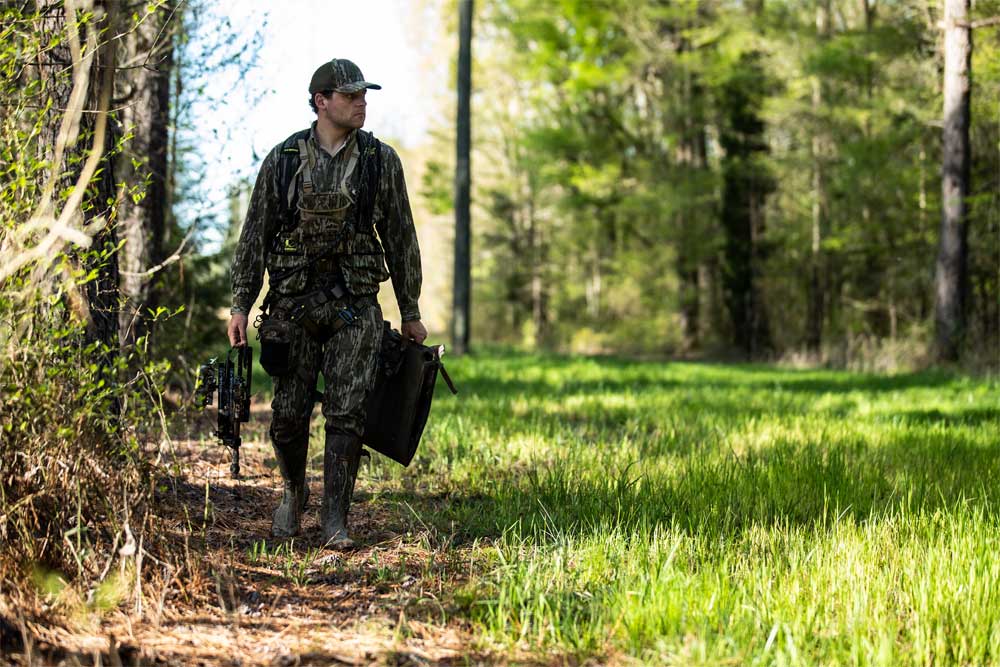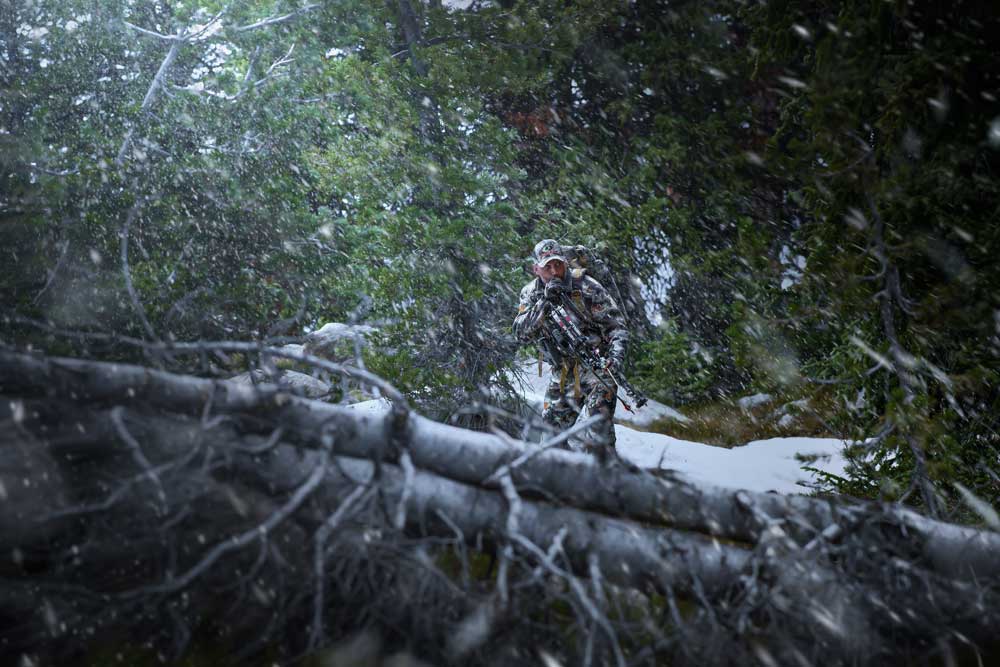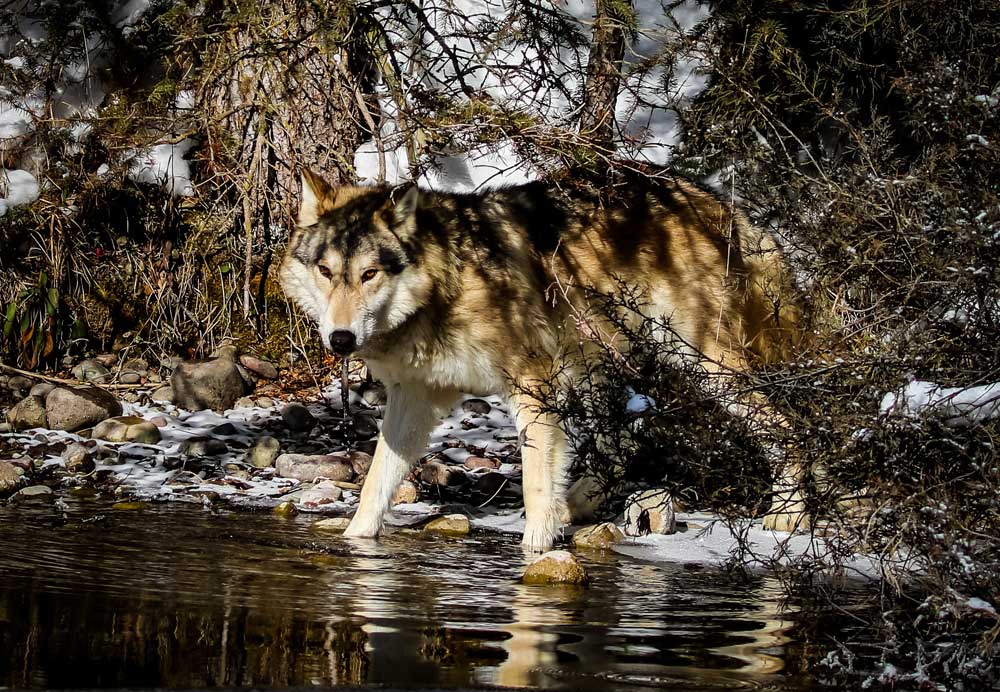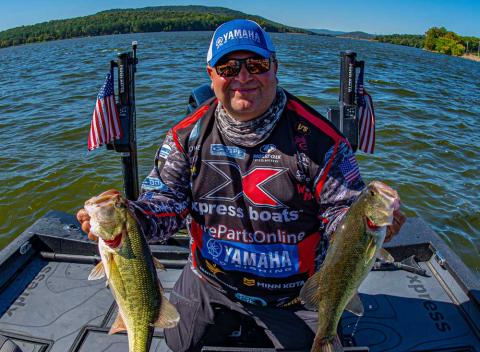Hunting is incredibly rewarding as a group bonding activity, but solo hunting can be a great escape from civilization. It allows you greater flexibility in where and when you go since you don’t have to coordinate and compromise with the rest of your party.
However, solo hunting comes with risks, especially if you’re covering rough terrain in an area with large predators. Safety is important during any hunt, but it becomes a matter of life or death during solo hunts.
The risks are manageable with enough research and preparation, so many experienced hunters solo hunt from time to time. Check out these seven tips for solo hunting safely to make your next adventure successful even if you tackle it alone.

1. Stay in Shape
The biggest assets you have while solo hunting are your physical strength and stamina. Whether you’re hauling elk back to your truck or traversing broad areas on foot, your fitness matters more when you’re hunting alone.
During the off-season, make sure to stay in good physical shape. Something as simple as taking long walks around the neighborhood each day can contribute to your overall stamina once it’s time to head back into the field. However, to build muscle and fitness, you should incorporate resistance and functional training exercises into your daily workout. Some of the best exercises for hunters in the off-season include deadlifts, scissor jumps, tire drags, and the Turkish Get Up.
2. Communicate Your Route
Planning your route ahead of your hunt is always important, but it becomes even more essential when hunting alone. You’ll need to communicate your approximate route to family and friends who are staying behind, so they can inform authorities of your whereabouts if you don’t return on time.
Even if you’re unsure of your route because you’ll be tracking down game that can roam over a large area, at least set boundaries for how far you’re willing to wander. That way, anyone who has to come and search for you has a good starting point.
3. Bring a Satellite Phone
Cell phone coverage is more widespread than ever, but unusual terrain or even cell tower outages can interrupt your service. Even if you’ll be hunting in an area that usually has cell service, invest in a satellite phone to make sure you’ll have near-universal coverage in case of an emergency.
If you’re on a day trip and are not going far from civilization, you could forgo the satellite phone in favor of a spare cell phone fully charged and brought along in a waterproof bag. This gives you a backup in case your primary cell phone runs out of battery or is damaged.

4. Check the Weather
Winter and summer both present unique challenges for hunters. Summer or early fall hunting requires carefully planning water breaks and clothing changes to avoid heat exhaustion. Remember to carry a water purifier straw or another additional water source to prevent dehydration while cutting your pack’s weight.
Even if you’re familiar with hunting in winter, brush up on how to stay warm while hunting so you can stay safe while on a solo trip. You’ll want to have a plan for every part of your body, but you’ll need to pay special attention to your toes and fingers. These are the first parts of your body to get frostbite, and having them warm and in working order is vital to getting back to civilization alive.
When you’re hunting alone, there’s no one there to provide an additional source of body heat or lend you a layer. Consider postponing your solo hunt if temperatures will be dropping below 0° F, as windchill can quickly cause frostbite with little warning. Also avoid overnight hunting and stick to daytime hours if you’re not completely confident in your ability to stay warm.
5. Know Local Predators
Although being mindful of predators is always an essential part of hunting survival skills, it’s especially critical during solo hunts. Hunting alone means no one else is around to watch your back.
Pack bear spray and take extra care to clean up all food waste after meals. Take extra care around water sources, which may attract mothers and their young. You may want to avoid solo hunting during mating season, as this time of year makes male animals more aggressive.

6. Pack Emergency Supplies
It can be tempting to pack fewer first aid supplies when hunting alone, especially if your pack seems quite heavy. However, having a trauma kit on hand can make the difference between life and death in an emergency.
Other survival supplies are just as necessary as a first aid kit. Even if you have a satellite phone, it can take rescuers some time to reach you if you cannot extract yourself from rough or heavily wooded terrain. Carry a survival blanket, extra water purifier, and a set of flares at an absolute minimum.
It’s also wise to keep extra water and food in your vehicle in case it breaks down at the very end of your trip. Don’t let this be the only source of emergency supplies, as they’ll be useless if you’re injured and stranded far from your vehicle.
7. Avoid Risks
Any hazard you encounter while hunting is much more dangerous if you don’t have someone around to help save you. Crossing high rivers, walking across old logs, and navigating rockfall areas could cost you your life if no one is there to get help for you.
If you encounter an unexpected situation that jeopardizes your route, consider changing your course. Although, ideally, your route should match the plans you communicated to your friends or family before departing, a small deviation is unlikely to prevent rescue if you need it.
However, if a significant reroute is required, use your satellite phone to contact someone and let them know. That way, you can avoid the hazardous area without putting yourself at risk in a potential search-and-rescue situation.
Safe and Successful Hunting
Solo hunting lets you make the most of your time in nature and helps you to hone your stalking, shooting, and tracking skills. However, it also means you have to stay fully alert at all times to remain safe and ready to handle any situation.
If you’re sure you’re ready for the challenge, take note of these tips and double-check all your gear before you depart. No matter where your adventure takes you, focus on having a safe and healthy trip. The success of your hunt won’t matter if you get seriously injured and can’t make it home with your prize.



























